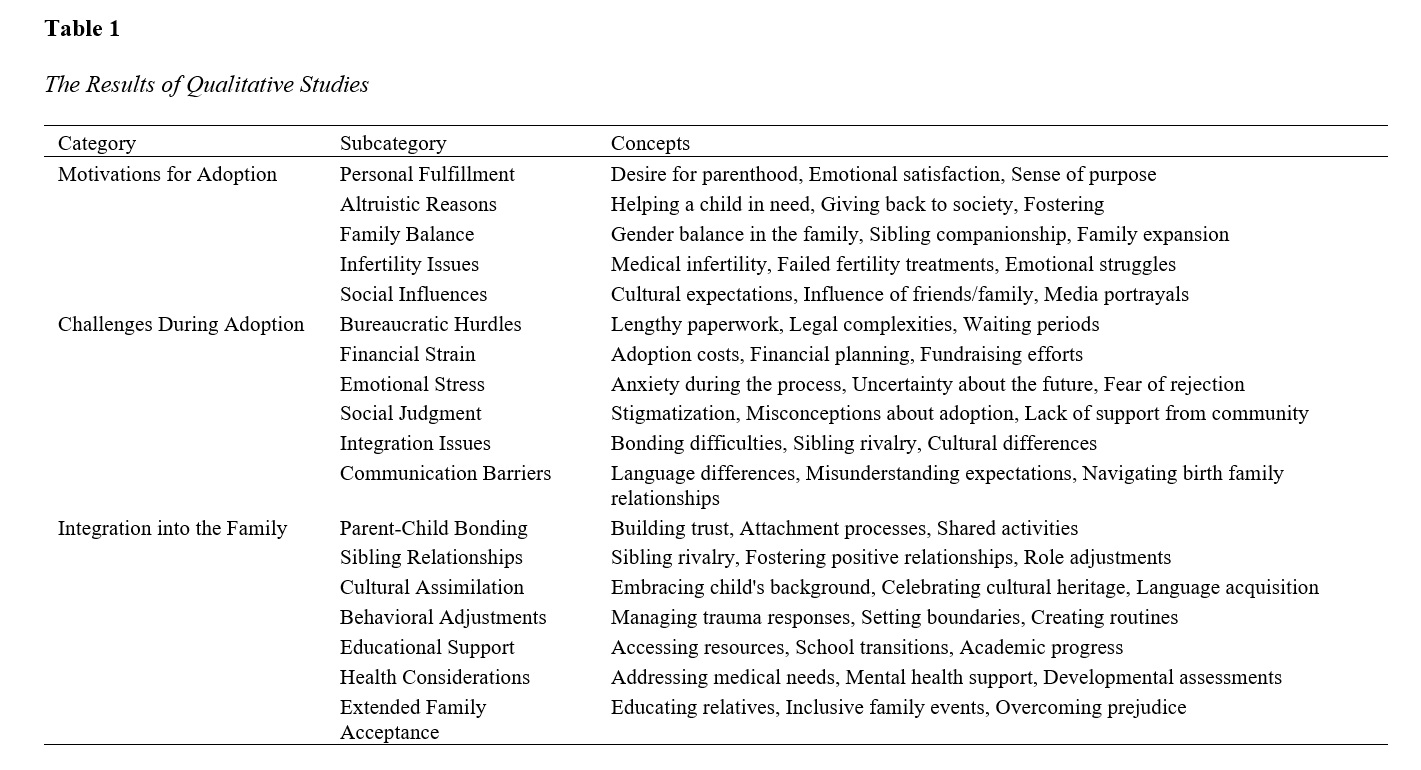Narratives of Parenthood: Experiences of Adoptive Parents
Keywords:
Adoptive parents, motivations, challenges, integration, family dynamicsAbstract
Objective: This study aims to explore and understand the experiences of adoptive parents, focusing on their motivations, challenges, integration processes, and long-term impacts on family dynamics.
Methods: This qualitative research employed a phenomenological approach, using semi-structured interviews to gather in-depth data from 24 adoptive parents. Participants were selected through purposive sampling, ensuring diverse representation in terms of age, gender, socioeconomic status, and ethnic background. The interviews were transcribed verbatim and analyzed using NVivo software, following Braun and Clarke's six-phase framework for thematic analysis. Data collection continued until theoretical saturation was achieved, ensuring a comprehensive exploration of the research questions.
Findings: The study identified four main themes: motivations for adoption, challenges during adoption, integration into the family, and long-term impact of adoption. Motivations included personal fulfillment, altruistic reasons, family balance, infertility issues, and social influences. Challenges encompassed bureaucratic hurdles, financial strain, emotional stress, social judgment, integration issues, and communication barriers. Successful integration involved efforts to foster parent-child bonding, manage sibling relationships, support cultural assimilation, address behavioral adjustments, provide educational support, consider health needs, and gain extended family acceptance. The long-term impact of adoption on family dynamics, identity formation, legal and social status, psychological well-being, community involvement, and future planning was significant.
Conclusion: Adoptive parenthood is a complex and transformative journey, marked by diverse motivations, significant challenges, and profound long-term impacts. The findings highlight the need for comprehensive support systems, inclusive policies, and continued research to address the evolving needs of adoptive families.
Downloads

Downloads
Additional Files
Published
Issue
Section
License
Copyright (c) 2023 Erwin A. William, William Russell (Author); Abbie Wilson (Corresponding Author)

This work is licensed under a Creative Commons Attribution-NonCommercial 4.0 International License.






